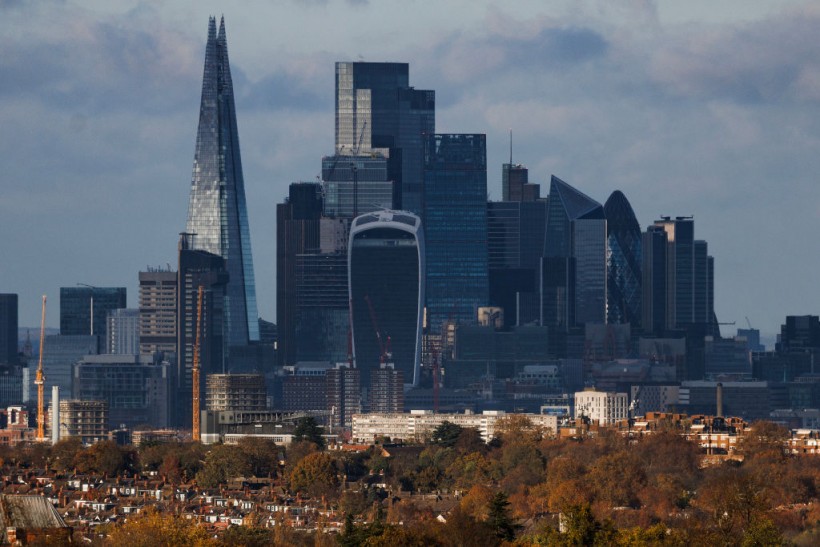The world is still far from meeting the goal of limiting global warming to 1.5 degrees Celsius, as agreed in the Paris Agreement, according to a new report by the United Nations.
The report, released on October 26, 2021, shows that the current pledges by countries to reduce their greenhouse gas emissions would lead to a temperature rise of between 2.1 and 2.9 degrees Celsius by the end of the century, compared to pre-industrial levels.
This would have devastating consequences for people and nature, such as more extreme weather events, sea level rise, biodiversity loss, food insecurity, and health impacts.
The report, called the Emissions Gap Report 2021, comes just days before the start of the 26th Conference of the Parties (COP26) to the UN Framework Convention on Climate Change (UNFCCC) in Glasgow, Scotland, where world leaders are expected to ramp up their climate action and ambition.
The report urges countries to submit more ambitious and concrete plans, known as nationally determined contributions (NDCs), to cut their emissions by 2030 and achieve net-zero emissions by 2050
Current pledges are not enough to close the emissions gap

The report finds that the current NDCs submitted by countries would result in a global emissions level of 55 gigatons of carbon dioxide equivalent (GtCO2e) in 2030, which is 7.5% lower than the level projected last year (59 GtCO2e) based on the previous NDCs.
However, this is still far above the level needed to reach the 1.5 degrees Celsius target, which would require emissions to be reduced to 25 GtCO2e by 2030.
This means that there is still a huge gap of 30 GtCO2e between the current pledges and the desired outcome, equivalent to the annual emissions of the 27 countries of the European Union and China combined.
The report also analyzes the long-term net-zero emissions targets announced by some countries, such as China, the United States, and the European Union, which together account for more than half of the global emissions.
If these targets are fully implemented and aligned with the 1.5 degrees Celsius goal, they could reduce the projected temperature rise by 2100 to 2.2 degrees Celsius.
However, the report warned that these targets are not yet legally binding or supported by adequate policies and measures and that they need to be translated into more ambitious and immediate actions for the 2030 timeframe.
Also Read: 11,000 Scientists Warns Catastrophy If No Climate Actions Done
Urgent and transformative action is needed to close the emissions gap
The report calls for urgent and transformative action from all countries, sectors, and levels of society to close the emissions gap and achieve the 1.5 degrees Celsius goal.
It highlights the key opportunities and benefits of accelerating the transition to a low-carbon and resilient economy, such as creating jobs, improving health, reducing poverty, and enhancing biodiversity.
The report identifies several priority areas for action, such as phasing out coal and fossil fuel subsidies, scaling up renewable energy and energy efficiency, enhancing natural carbon sinks, promoting a circular economy and sustainable consumption and production, and increasing international cooperation and finance.
It also emphasized the need to integrate climate action with the recovery from the COVID-19 pandemic, which offers a unique chance to rebuild better and greener.
The report concluded that the COP26 meeting in Glasgow is a critical moment for the world to demonstrate its commitment and leadership on climate change, and to raise the ambition and action needed to avoid the worst impacts of global warming.
It urged countries to submit new and updated NDCs that are aligned with the 1.5 degrees Celsius goal and to implement them with urgency and transparency.
The UN Secretary-General, António Guterres, said that the time for half measures and hollow promises was over and that more action was needed from the private sector and non-state actors such as local governments.
He added that this was not just about words on paper, but about getting stuff done.
Related article: Climate Change Expanding the Range of Crop Pests, Threatening Global Food Security
© 2024 NatureWorldNews.com All rights reserved. Do not reproduce without permission.

![Tsunami Hazard Zones: New US Map Shows Places at Risk of Flooding and Tsunamis Amid Rising Sea Levels [NOAA]](https://1471793142.rsc.cdn77.org/data/thumbs/full/70325/280/157/50/40/tsunami-hazard-zones-new-us-map-shows-places-at-risk-of-flooding-and-tsunamis-amid-rising-sea-levels-noaa.jpg)



